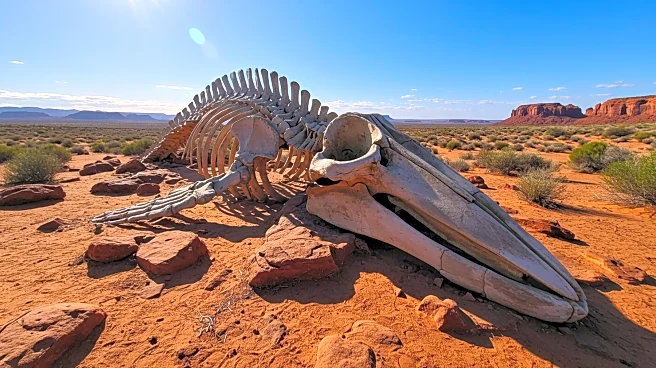What is the story about?
What's Happening?
A 25 million-year-old fossil discovered on an Australian beach has led paleontologists to identify a new species of ancient whale, Janjucetus dullardi. This species, characterized by its cartoonish appearance with large eyes and a shark-like snout, was a small predator from the Oligocene Epoch. The discovery was made by an amateur fossil hunter, Ross Dullard, and confirmed by researchers at Museums Victoria. Janjucetus dullardi is only the fourth species identified from the mammalodontids group, providing new insights into the evolutionary history of whales.
Why It's Important?
The identification of Janjucetus dullardi is significant for understanding the evolutionary trajectory of cetaceans. This discovery sheds light on the diversity of early whales and their adaptations to prehistoric marine environments. It also highlights the role of amateur fossil hunters in contributing to scientific knowledge. The find offers valuable information on how ancient whales evolved and adapted, which can inform current studies on how modern marine life might respond to environmental changes, such as climate change.
What's Next?
Further research will focus on analyzing the fossil remains to understand the behavior, diet, and ecological role of Janjucetus dullardi. Scientists aim to uncover more fossils in the region to piece together a more comprehensive picture of early whale evolution. The study of this new species may also lead to a reevaluation of the evolutionary timeline of cetaceans, potentially revealing new connections between ancient and modern whale species.















